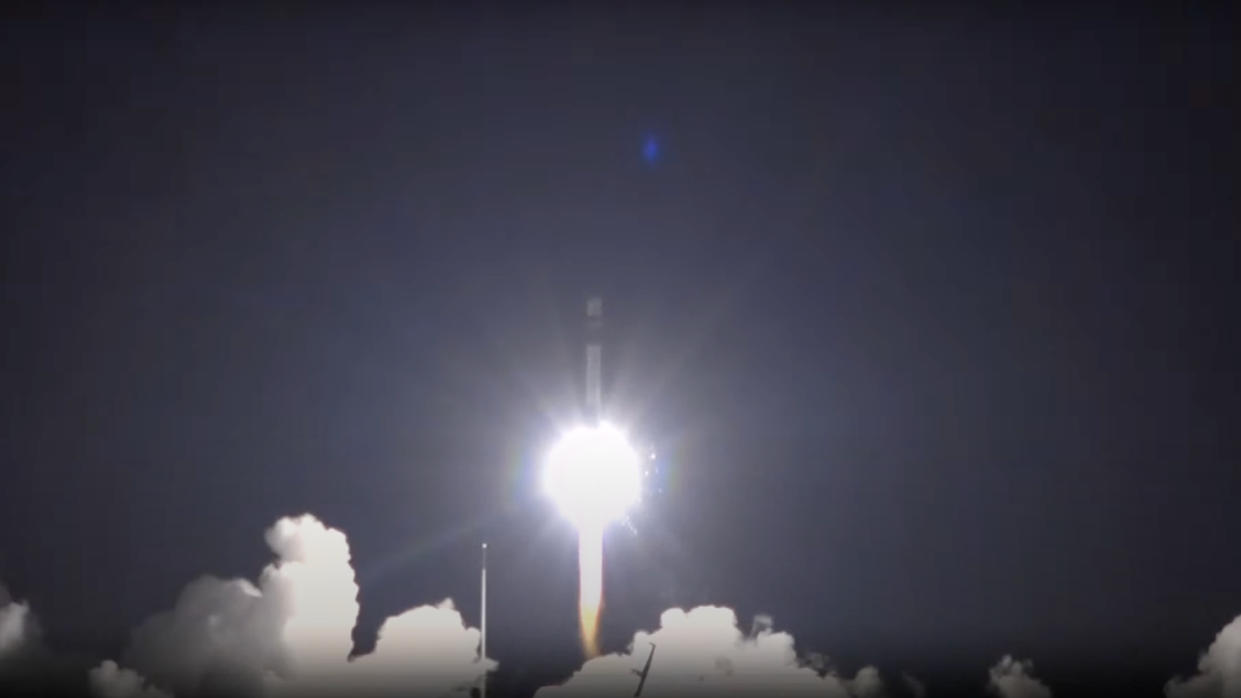Rocket Lab launches 5 IoT satellites on landmark 50th mission (video)

Rocket Lab reached the milestone 50th launch of its Electron rocket in record time.
An Electron lifted off from Pad B at Launch Complex 1 in Mahia, New Zealand, at 2:13 p.m. EDT on June 20 (1813 GMT; 6:13 a.m. local New Zealand time on June 21). The rocket was operating with an instantaneous launch window but lifted off at the first opportunity in a 14-day launch window.
The mission, which Rocket Lab named "No Time Toulouse," is carrying five satellites for Kinéis, an Internet of Things (IoT) satellite connectivity provider. The satellites were deployed in a precise sequence, one after the other, with deployment completed today by about one hour and six minutes after launch as planned.

"MISSION SUCCESS for our 50th Electron launch! Welcome to orbit, @KineisIoT. Congratulations to the entire Rocket Lab team on reaching 50 launches faster than any other commercially developed rocket. Thank you to the many customers who have flown on Electron and helped us revolutionize access to orbit for small satellites," Rocket Lab said via X shortly after deployment today.
Kinéis, which is based in Toulouse, France, is backed by private and public investors, including the French space agency CNES. The mission is the first of a planned five; Rocket Lab will send 25 satellites into orbit to complete Kinéis' constellation.
"No Time Toulouse" was Rocket Lab's 50th Electron mission, following the first in May 2017, which ended in failure. The half-century of launches includes one Hypersonic Accelerator Suborbital Test Electron launch. Electrons had been launching solely from New Zealand until a first liftoff from U.S. soil last year.
The milestone came fast — seven years and one month after Electron's debut. For comparison, SpaceX took seven years and nine months to conduct 50 Falcon 9 launches, while United Launch Alliance's venerable Atlas V rocket reached the milestone in just under 10 years, and the now-retired European Ariane 5 in 11 years and 9 months.
Electron's development and success — overcoming significant challenges on the way — have positioned Rocket Lab as a significant player in the small satellite launch market.
The carbon composite rocket uses electric pump-fed Rutherford engines burning rocket-grade kerosene (RP-1) and liquid oxygen (LOX). It can carry 661 pounds (300 kilograms) of payload to low Earth orbit and has become a popular choice for dedicated missions, like "No Time Toulouse," as well as smaller rideshare missions.
Rocket Lab founder Peter Beck put the achievement into context in a company post on X ahead of the milestone launch. Recounting a meeting with a venture capitalist in the company's early days, Beck succinctly noted the hurdles ahead through the potential investor's summary of Beck's proposal.
RELATED STORIES:
— US Space Force picks Rocket Lab for 2025 Victus Haze space domain awareness mission
— Rocket Lab launches new NASA solar sail tech to orbit (video, photos)
"That made it sound totally absurd. It went something like: 'So you have no degree. You're from a country that has never put anything into orbit before. You think you can beat Richard Branson. You're going to build a rocket out of carbon composite; that's never been done before. You're proposing to 3D-print a rocket engine; that's never been done before. And, by the way, you're also going to build a large site in another country. You're going to get a bilateral treaty signed between those two countries to enable it, and you think that you can get there faster than everybody else.'"
Beck said that he systematically went through each one of those points and explained how Rocket Lab would address them. "And they led the B-round [of funding]," he added in the X post.
Rocket Lab is now working on reusing Electron first stages that are fished out of the sea following reentry.
The company is also progressing on a new, larger launch vehicle called Neutron, whose name is in keeping with Rocket Lab's subatomic particle theme. (The company also builds a satellite bus called Photon.) The next-generation, reusable rocket is expected to fly for the first time in mid-2025.
Editor's note: This story was updated at 3:25 p.m. ET on June 20 with news of successful satellite deployment.

